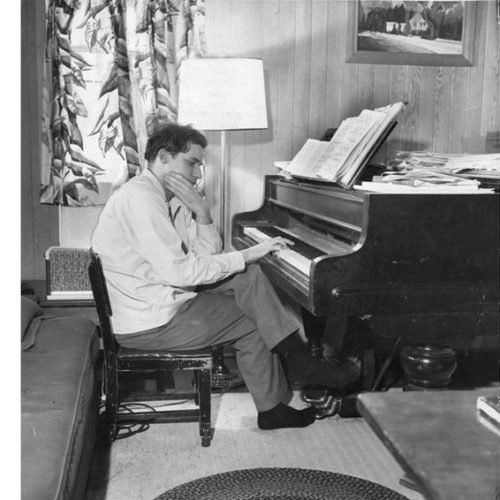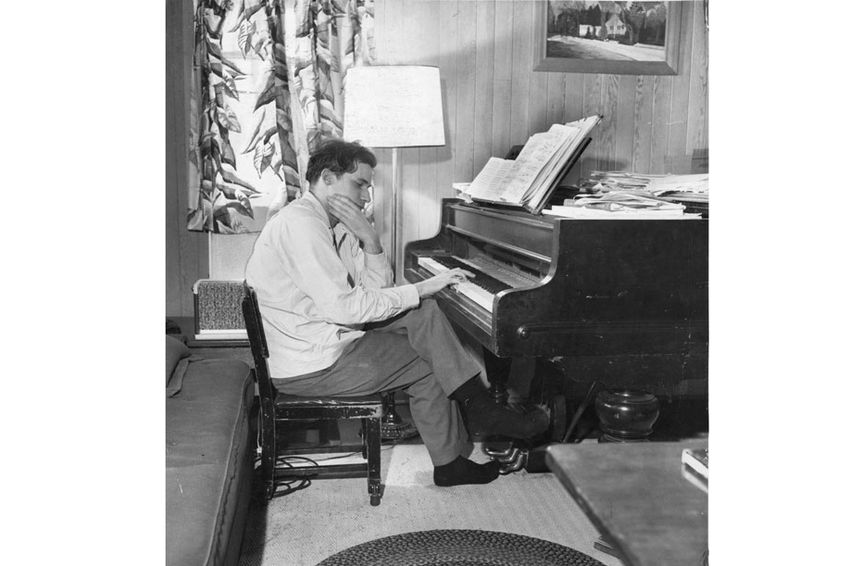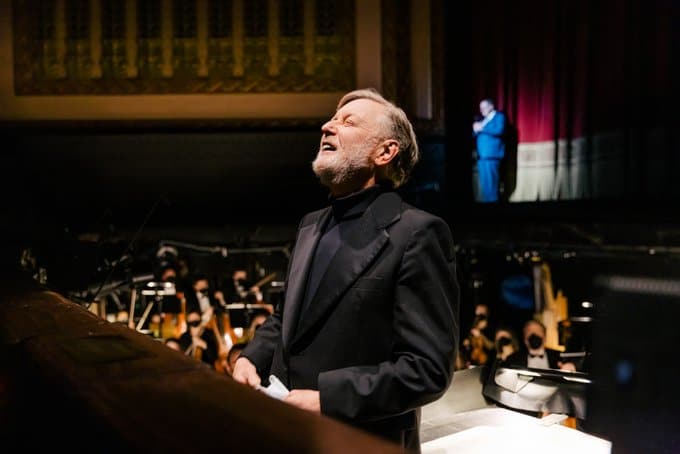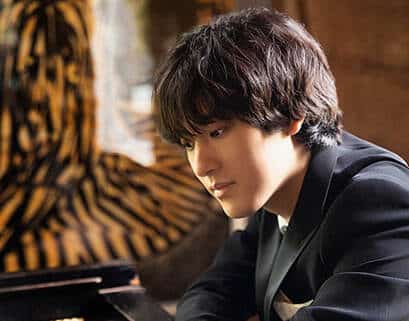Rare film of Glenn Gould with live audience
mainDaniel Poulin tells us that this filmed performance of Gould on February 2o, 1957 is the only one with a live public. He plays Bach’s Partita no5: Sarabande and Courante.


Daniel Poulin tells us that this filmed performance of Gould on February 2o, 1957 is the only one with a live public. He plays Bach’s Partita no5: Sarabande and Courante.

Decca is marking the birth centenary of John…

Andrew had a second coming on record when…

Statement by the Berlin Phil: It is with…

Ignore the annual furore about pop insertions at…

Session expired
Please log in again. The login page will open in a new tab. After logging in you can close it and return to this page.
Sublime musician, strange dude.
Yes, Skippy, you’re right: Gould was both of those things.
I highly recommend that you read “The Glenn Gould Reader”, if you have not done so. It’ll give you a great insight into his apparent strangeness.
– cheers, Greg
So amazingly HUMAN!!
Is there not some live stuff from Russia?
Recordings only, not on film.
Where was it filmed? 1957 is the period I saw him in San Francisco, for the only time. Daniel Poulin will know. Arresting playing, especially the breathless 45 seconds of this Courante, extraordinary, almost too fast, bordering on the incoherent. And there’s no singing. Is it really Gould?
The beautiful Sarabandes remind that Bach’s partitas are sometimes called his German suites, with the French Overture somewhat illogically counted a seventh. Kolya Lifschitz plays it wonderfully in his first recording, barely a teen. He often begins recitals with a Baroque work or group,– Rameau, Couperin, Bach, or lesser-knowns. The transcriptions are not now often heard, with few eceptions. I miss some of them.
I also like Alexis Weissenberg, who recorded the partitas and French Overeture; he is capable of presto tempi, witness “Rejoice, Beloved Christians”, a real running chorale at three simultaneous gaits, with a tangle of twisted fingers at the end that makes me laugh. Rosita Renard, Kocsis, and Simon Barere habitually took fast tempi, but only Renard in this music, the first partita. Kempff is ever measured, sane, sometimes lacking the madness of art. But even he gets ecited in “Wachet auf”.
My Herzliebste, Ste. Wanda Landowska, recorded the first two partitas, on harpsichord. Constance Keene, Joao Martin, and especially Konstantin Lifschitz are others whose Bach I’ve liked on piano in this music. For the harpsichord, and for me, Landowska stands alone in the Goldbergs, Italian Concerto, and Chromatic Fantasy and Fugue.
Hi Edgar,
Gould was simply brilliant. A brilliant pianist, a brilliant musician, and a brilliant mind. I reread “The Gould Reader” every couple of years to try to stay connected with the latter, and I often listen to his recordings, not only his Bach. This video is just too darned short!
Like you, I admire Weissenberg’s Bach, and Argerich, Richter, and Gulda as well.
It took me a while to come to terms with Kempff’s unadorned Bach (the opening Aria of the Goldbergs still shocks me), but I did so and now I like his playing too.
My own Herzliebste (what a lovely word!) in Bach is Tureck. Her interpretations are remarkable and indispensable. She of course heavily influenced Gould in his younger days.
Feinberg and Fischer are also great in what might be termed “Old Testament” Bach.
I had a version of the Toccatas on clavichord by Troeger, which were quite fascinating in sound, but his playing was so pedestrian I gave the CD away. I am surprised that, given the HIP movement of the past few decades, there aren’t a gazillion clavichord recordings to choose from.
To me, the interesting Bach keyboard performances are on piano and organ (which is a subject for a different time). I have always felt that the harpsichord is too mono-coloristic, with no real dynamic range. That being said, Landowska is by far the most interesting harpsichordist I have heard.
As Radar O’Reilly once said: “Ahhhh, Bach!”
I forgot to ask, Edgar: have you found Bruno Canino’s Goldbergs yet? I love ’em! (It?)
Dear Edgar,
This is Stefanos from Greece, remember? I’ve been trying to find you but your email address doesn’t seem to work. Could you please give me your email (my own is deep_into_gould@yahoo.co.uk). My very best!
More from the same concert: https://slippedisc.com/2018/08/who-knew-first-film-of-glenn-gould-conducting-mahler/
when will they show him walking on water ???????talking to cows ?????
The fact about Gould is that he was an intelligent musician who was way too eccentric for many of us; he didn’t have the well-rounded life, but it was insular.
I believe true understanding of great music derives not only from the greatness of the music itself but by the lived human experience which puts it all into context, rescuing us from the quotidian and ourselves. I feel Gould always existed in a cold, purist vacuum and his performances reflected that.
I believe the poor man had a personality disorder.
Some type of musicians let themselves be absorbed entirely by the music they perform, where they can find all the emotional experience they need, but without the mess of human relationships. A perfectly sterile bubble where emotional fulfilment is disconnected from life.
Bruno Canino is one of the best to record the Goldbergs, amico. I kmew he would be or you would not like him.
My problem is Landowska; I’ve lived with her 1945 Goldbergs wince they were issued; they give me everything I want in this music. I saw Gould play them, also Geoffrey Madge, and two Freiburg nuns at Heidelberg University. I have CDs by Gould, Yudina,, Lifschitz, Kempff, Weissenberg, and Nikolayeva; and Landowka’s 1933 HMV harpsichord version.
In 75 years no one has modified or added to what I find in Landowska 1945. Her identification with them is like Casals’s for the cello uites, Uto Ughi in the solo violin, the product of long living and study. Cortot’s best Chopin and Schumann, Furtwaengler’s best things, Bruno Walter’s Mahler, make it almost useless for me to hear most other ways of doing them.
Secretly I still look and listen, curious, realising much is habituation, acidents of experience. We hope others may like what we like, but it isnt’ necessary. Of the thousand ways of life, each of us can know but one. This does not exclude the possibility of delightful discoveries. Cheers!
Beautiful playing, but much too much legato in the Sarabande – not necessary to get the lines come across. The Courante much too fast. The result is: much too ‘romantic’. This was before the development of HIP.
===”is the only one with a live public”
Correction : “is the only known one with a live public”
Who can be certain what’s out there ?